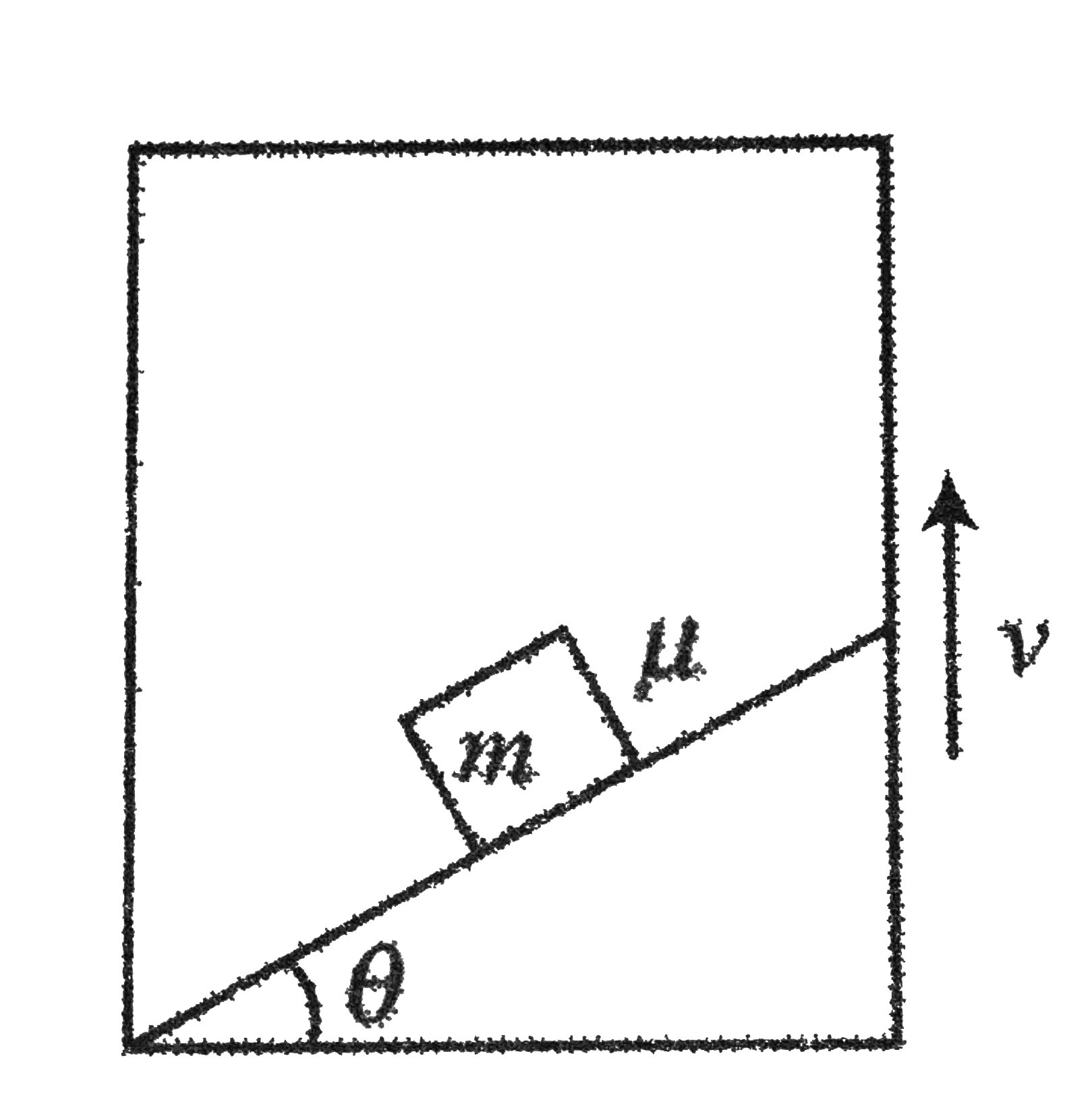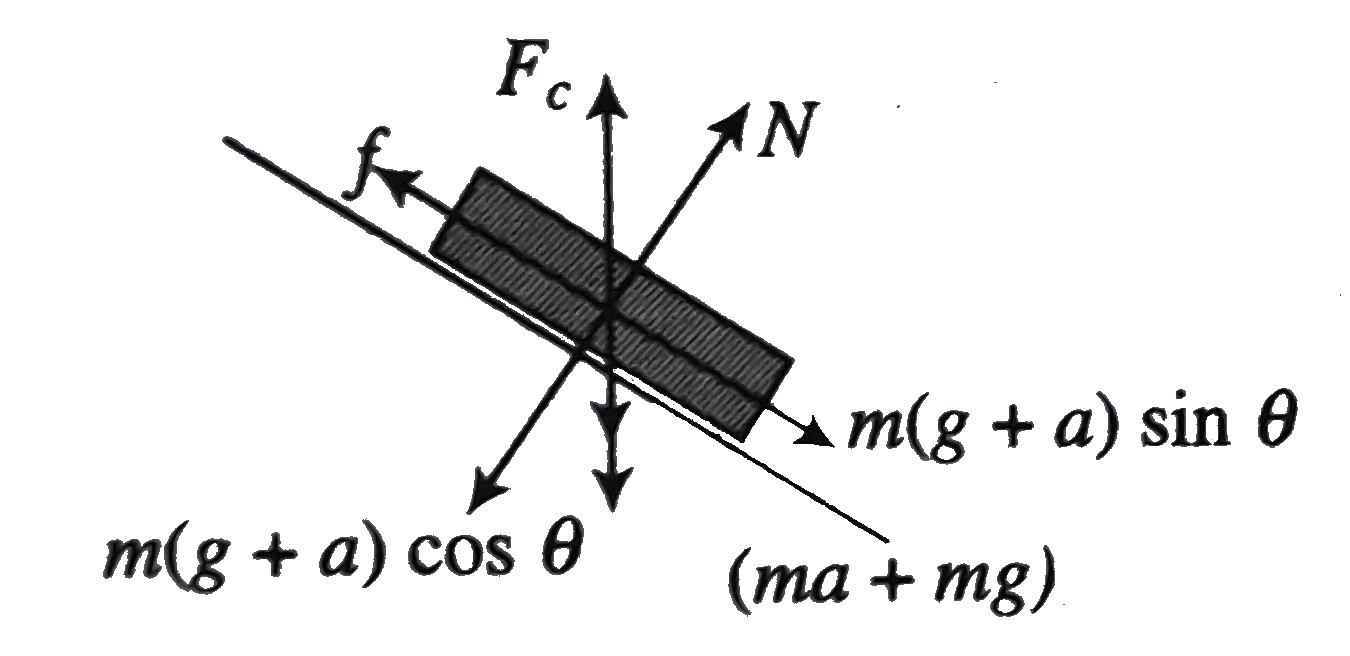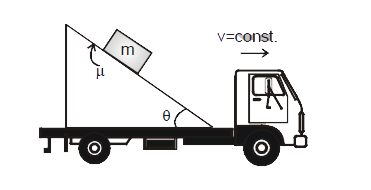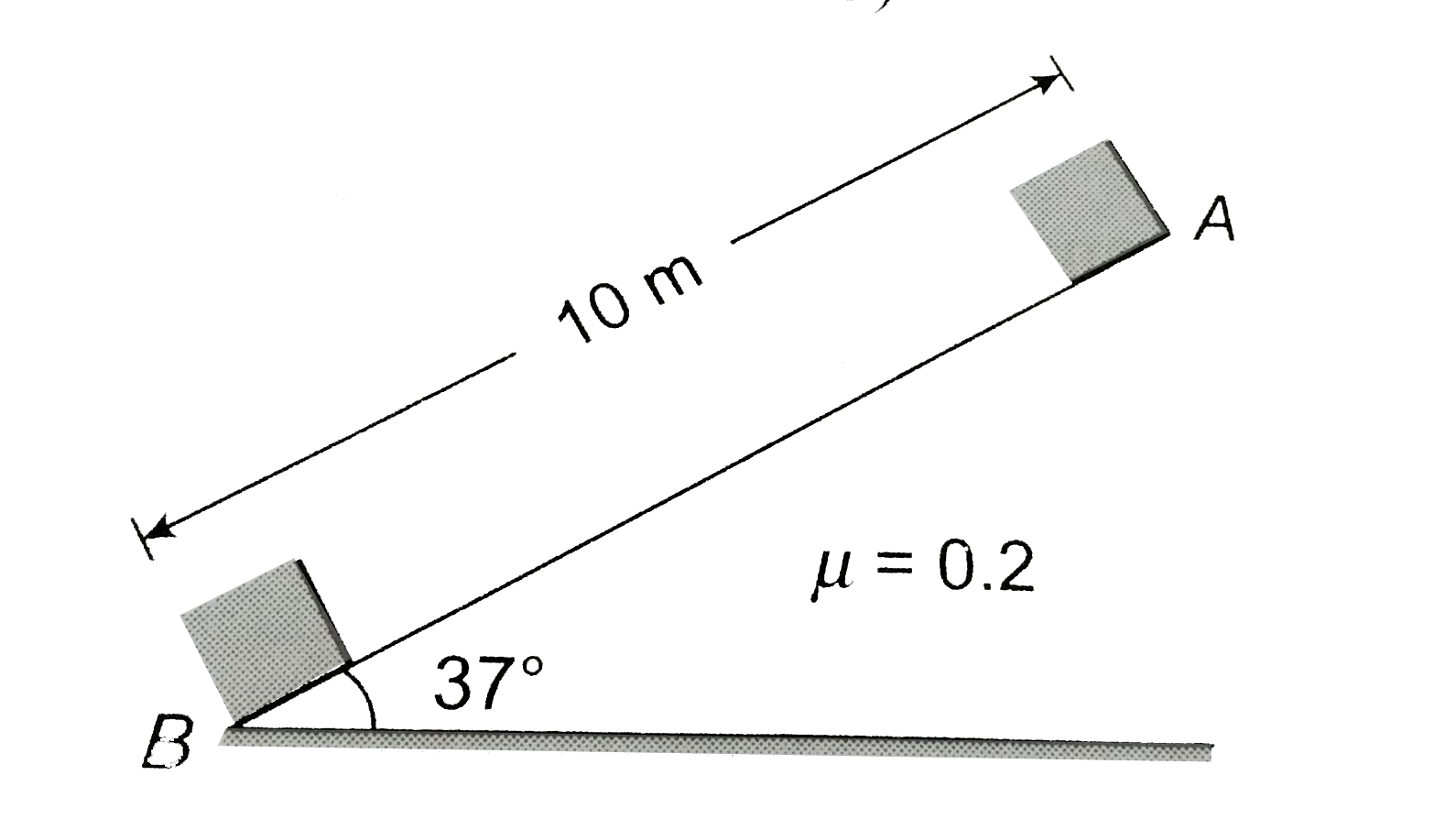An inclined plane is moving up with constant velocity v. A block kept on incline is at rest. Calculate the work done by gravity, friction force, and normal reaciton on block in time interval of t.

The contact force between block and inclined is parallel to the incline
The contact force between block and inclined is of the magnitude m(g+a)
The contact force between block and inclined is perpendicular to the incline
The contact force is of the magnitude mgcosθ
The correct Answer is:b
Fig. Fc=√f2+N2=m(g+a)

f=m(gsin+a)sinθ,N=m(g+a)cosθ
Net contact force Fc=√f2+N2=m(g+a)
Topper's Solved these Questions
- BOOK - CENGAGE PHYSICSCHAPTER - NEWTON'S LAWS OF MOTION 2EXERCISE - Multiple Correct2videos
NEWTON'S LAWS OF MOTION 2
- BOOK - CENGAGE PHYSICSCHAPTER - NEWTON'S LAWS OF MOTION 2EXERCISE - Linked Comprehension52videos
NEWTON'S LAWS OF MOTION 2
- BOOK - CENGAGE PHYSICSCHAPTER - NEWTON'S LAWS OF MOTION 2EXERCISE - Subjective21videos
NEWTON'S LAWS OF MOTION 2
- BOOK - CENGAGE PHYSICSCHAPTER - NEWTON'S LAWS OF MOTION 1EXERCISE - Integer5videos
NEWTON'S LAWS OF MOTION 1
- BOOK - CENGAGE PHYSICSCHAPTER - PROPERTIES OF SOLIDS AND FLUIDSEXERCISE - INTEGER_TYPE2videos
PROPERTIES OF SOLIDS AND FLUIDS
Similar Questions
A block of mass m is placed on an inclined plane which is moving with constant velocity v in horizontal direction as shown in figure. Then find out work done by the friction in time t if the block is at rest with respect to the incline plane.
 View Solution
View SolutionA rough inclined plane is placed on a cart moving with a constant velocity u on horizontal ground. A block of mass M rest on the incline. Is any work done by force of friction between the block and incline ? Is there then a dissipation of energy ?
View Solution
Knowledge Check
- Question 1 - Select One
A small block of mass m is kept on a rough inclined surface of inclination θ in an elevator.Th elevator goes up with a uniform velocity v and the block does not slide on the wedge.The work done by the force of friction on the block in time t as seen by the observer on the inclined plane will be
AzeroBmgvt cos2θCmgvt sin2θDmgvt sin 2θ - Question 2 - Select One
A small block of mass m is kept on a rough inclined surface of inclination θ fixed in an elevator. The elevator goes up with a uniform velocity v and te block does not slide n te wedge. The work done by the force of friction on the block in time t will be
AzeroBmgvtcos2θCmgvtsin2θD12mgvtsin2θ - Question 3 - Select One
A small block of mass m is kept on a rough inclined surface of inclination θ fixed in an elevator. The elevator goes up with a uniform velocity v and te block does not slide n te wedge. The work done by the force of friction on the block in time t will be
AzeroBmgvtcos2θCmgvtsin2θDmgvtsin2θ
A block of mass m is moving down with constant velocity along an inclined plane of inclination θ. What is the work done by external force in pulling the block along the inclined plane through a height h with constant velocity?
View SolutionA block of mass 6.0 kg is pushed up an incline to its top by a man and then allowed to slide down to the bottom. The length of incline is 10 m and its height is 5.0 m. the coefficient of friction between block and incline is 0.40. Calculate (a) the work done by the gravitational force over the complete round trip of the block, (b) the work done by the man during the upward journey, (c) the mechanical energy loss due to friction over the round trip, and (d) the speed of the block when it reaches the bottom.
View SolutionA small block of mass m is kept on a rough inclined surface of inclination θ fixed in a car. The car moves with a uniform velocity v and the block does not slide on the wedge. The work done by the force of friction on the block in time t will be
_PHY_E05_201_Q06.png) View Solution
View SolutionA small block of mass 2kg is kept on a rough inclined surface of inclination θ=30∘ fixed in a lift. The lift goes up with a uniform speed of 1ms−1 and the block does not slide relative to the inclined surface. The work done by the force of friction on the block in a time interval of 2s is
View Solution
A block of mass 10kg is placed on a rough surface inclined plane of inclination 37∘ with horizontal. Now the block is released . The work done by the gravitational force and friction force, when the block moves from A to B(sin37∘=0.6,cos37∘=0.8)View Solution
